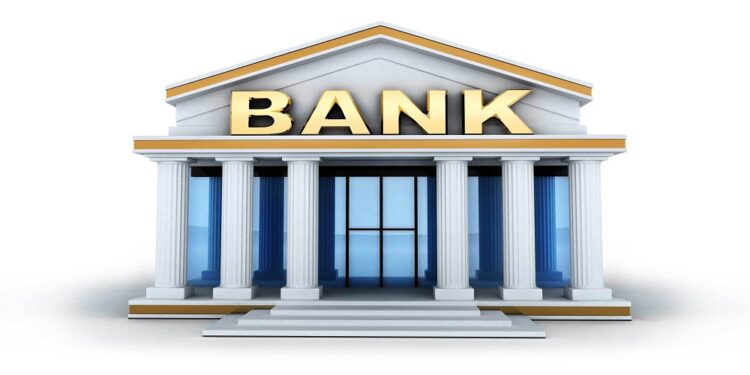Choosing the right bank for you, is a decision that you can’t take lightly. Most people don’t take time to consider which bank is right for them. Rather they will want to bank with a banker which their friend or family member is banking with. Others would just select a bank because they were convinced by the salesperson or simply because the bank is near to their home.
Although proximity is also a factor to consider, but there are other factors that should match the checklist before finally opening that account. It pays to take some time to concentrate on finding the right bank for you. Each bank has a solution for somebody, you just need to find which bank has the personalized solution for you.
Here are the factors to consider when choosing your bank.
1. Fees
Most bank accounts are free, but some accounts like savings and checking accounts in some banks attract monthly or yearly fees. When selecting your bank, you need to find which bank that does not charge these fees and if they do at what rate. Understanding this will help you save your money. If you deposit money more frequently like for instance monthly, then you need to know that some banks do actually waive on these fees.
2. Transaction limits
Some banks will limit you on the number of transactions you can make in a day or even the amount you can transact per single transaction or day. If you are a person who makes many transactions in a particular set of time or you anticipate to make huge transactions, you might want to take this factor very seriously.
Ideally you should be free to make as many transactions as you want, withdraw, deposit or transfer funds as much as you want. Banks have these limits to safeguard your funds from hackers or fraudsters. Though some banks will give you an option to pick your limit or adjust in future, so you need to find which bank does that. For instance, you can’t predict an emergency, can you?
3. Minimum balance requirements
Small banks or microfinance institutions do not normally have a minimum balance policy. But some banks do actually require you to maintain a specified amount of money in your account at any given time. When selecting your bank, you need to consider this factor so as to fit it into your budget.
4. Customer service
This is very vital for any bank. When picking your bank, you need to take into consideration their customer service and support. This will come handy when you have a problem that you need your banker to address. And to your dismay in that critical moment, you get a very rude customer representative, unresponsive one or even no support at all. So, take this factor very seriously.
5. Security
This is the most important factor to take into consideration when choosing your bank. Imagine working hard to earn money, deposit it and when you want to make a transaction, you find you don’t have any money in your account. When selecting your preferred bank, choose that one that has implemented very strong security measures to safeguard your money from unauthorized withdrawals and transfers by hackers, fraudsters or even the bank staff.
6. Interest rates
Banks normally charge interest rates on deposit and on borrowing a loan. This is very vital, so that you don’t end up paying huge interest rates when you could have paid half or even quarter of that on a different bank. When selecting your bank first study their rates on deposits and in case you might want to borrow a loan from them, what interest rate will it attract.
7. Overdraft
Though this is a service offered by virtually every bank, some banks have restrictions on the amount of overdraft you can take and on which types of accounts. Also remember overdrafts don’t come for free, there are fees charged, which can be very huge in some banks. When selecting your preferred bank, you need to factor in this important consideration. Study the bank’s policy on overdrafts and how much they charge for overdrafts. It’s advisable to avoid overdrafts at all cost because of the fees they attract, but you don’t know when and if you will fall short of cash in future and dearly need an overdraft.
8. Mobile and online access
We are in a digital age, and literally every person has access to a mobile phone and the internet. Most banks have integrated mobile banking and online banking into their systems. When choosing your preferred bank, you need to take into consideration this factor. This will help you transact from the comfort of your home; check balance, pay bills, make electronic deposits, transfer funds, order checks, etc. without moving even an inch.
9. Branch availability
You might want to take this into consideration for instance when you have a problem or want a service that require human help. You might have lost your debit/credit card, want to adjust the terms of your account or any other issue that will require you to visit your nearest branch. Imagine if your nearest branch is 100 miles away. When selecting your bank, consider the one with the most branches, that are distributed all over the country for convenience purposes. Some banks have agents, so you may want to consider that too.
10. ATM access
Nowadays most transactions occur electronically, to either deposit or withdraw. Who has time to queue in a banking hall anyway? And despite that, ATMs are cheaper to transact with than over the counter. When selecting your bank, it’s wise to pick that one with many ATMs that are spread across the country or in areas you frequent the most. This is important more so if you want to do a transaction maybe at night and you can’t locate an ATM nearby.
11. Sub accounts
Some people will prefer to have separate sub accounts, more so savings accounts, under the main account, in order to sub-divide their money into separate goals. For instance, having a savings sub-account for your children’s school fees, different from that one for emergency funds, different from that one for business funds. In case you are such a person you might want to pick a bank that allows that.
12. Reputation
Reputation is as important as the brand, image and goodwill of a bank. Listen to what people are saying about a certain bank(s), their experiences, and base your decision on that too. Some people might have had bad experiences while banking in certain banks, for instance; poor customer services, miscalculation, extra charges, lost funds, unauthorized withdrawals/transfers, slow services, system errors, bank keeps having technical issues, unresolved problems, among others. When shopping for your bank, avoid such banks and go for the almost perfect bank.
13. Bank charges
Some banks have extra charges that you may want to know before selecting your banker. For instance, account closing fee, early withdrawal penalties, excess transfer fees, overseas ATM fees, foreign transaction fees, dishonour fees, overdrawing approval fees, etc. You may want to study such kind of charges that your banker will impose on your account before selecting the bank. If you can get a bank that does not charge such fees or take very minimal fees, the better.
14. Extra services
Banks normally have extra services they offer beyond just deposit, withdraw and lending. Services such as; stock brokerage, merchant banking, leasing, mutual funds, venture capital, telebanking, locker services, underwriting, all round debit/credit card that you can use to shop or refuel, writing checks on your account, borrowing against your holdings, etc. If you anticipate that you will need to use such extra services, you may want to select a bank that offers them.
15. Bank incentives
Most banks, actually all banks, have what they refer to as incentives or favours. These come handy in order to motivate their customers to save or transact more. Imagine your bank rewarding you with a commission for transacting money, for being the best customer, for saving more, etc. Some banks go as much as even buying a home, car or vacation for the customer who they think is their best.
Students should look at this factor more because most banks tend to be lenient to their student customers, for instance having no minimum balance requirement, free account opening, free transactions, bursaries, grants, student loans, among others. So, you need to consider this keenly if you are a person eager to be appreciated or a student looking for a convenient bank that understands you.



































































































































































































Mmmh good article…
visibility, history and bank charges
Very Educating..thank u